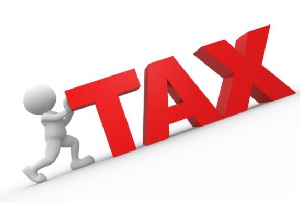The National Commission for Civic Education (NCCE) has appealed to Ghanaians to regularly and honestly pay their taxes to ensure that governments do not borrow excessively.
A summary of economic and financial data released by the Bank of Ghana in May this year revealed that the total public debt for Ghana has reached ¢137 billion putting the debt-to-GDP ratio at 67.5 percent.
This, the NCCE believed could be avoided especially where the President was committed to building Ghana beyond aid if citizens paid their taxes in honesty. The NCCE noted that governments’ major source of revenue was through taxes, but in situations where citizens did not pay their taxes as expected, governments might borrow to cover the shortfalls.
However, governments could incur serious debts if it continued to borrow excessively and that would put more pressure on the country’s currency and ultimately hurt the economy.
Ms Judith Adomako-Ofosua, the Mfantseman Municipal Director of NCCE made the appeal during a tax compliance campaign with timber operators at the Mankessim timber market.
“Citizens all over the World pay taxes to build their nations, the regular and more citizens pay their taxes, the more revenue for the government to accelerate socio-economic developments across the country,” she said.
She mentioned that developed countries in Europe and America who Ghana went for aid and assistance were where they were because their citizens honored their tax obligations honestly.
Mr Wilfred Doughan, Civic Education Officer encouraged the woodworkers to pay tax on the income they earned on their business adding that, payment of taxes was not only a civic duty but it was backed by law and that failure or refusal to meet one’s tax obligation attracted a fine, imprisonment or both.
He quoted Chapter six (6) Article 41, paragraph (j) of the 1992 constitution which enjoins citizens as a civic responsibility to declare their income honestly to the appropriate lawful agency – the Ghana Revenue Authority and to satisfy their tax obligation to support his statement.
Similar tax compliance education and other activities had been organized by the NCCE for other members of the informal sector, religious organizations and market women in the Municipality as part of the campaign.
The participants were educated on the rights of taxpayers, the need to pay tax, the importance of tax to the state and the behavioral aspect of tax collectors which were unlawful and corruptible.
They suggested to the government to introduce tax education in the country’s educational curricular right from the basic to the tertiary school levels to instill the habit of paying tax in the young citizens for them to grow with it.
Business News of Sunday, 24 December 2017
Source: ghananewsagency.org
NCCE urges Ghanaians to pay their tax
Entertainment
















